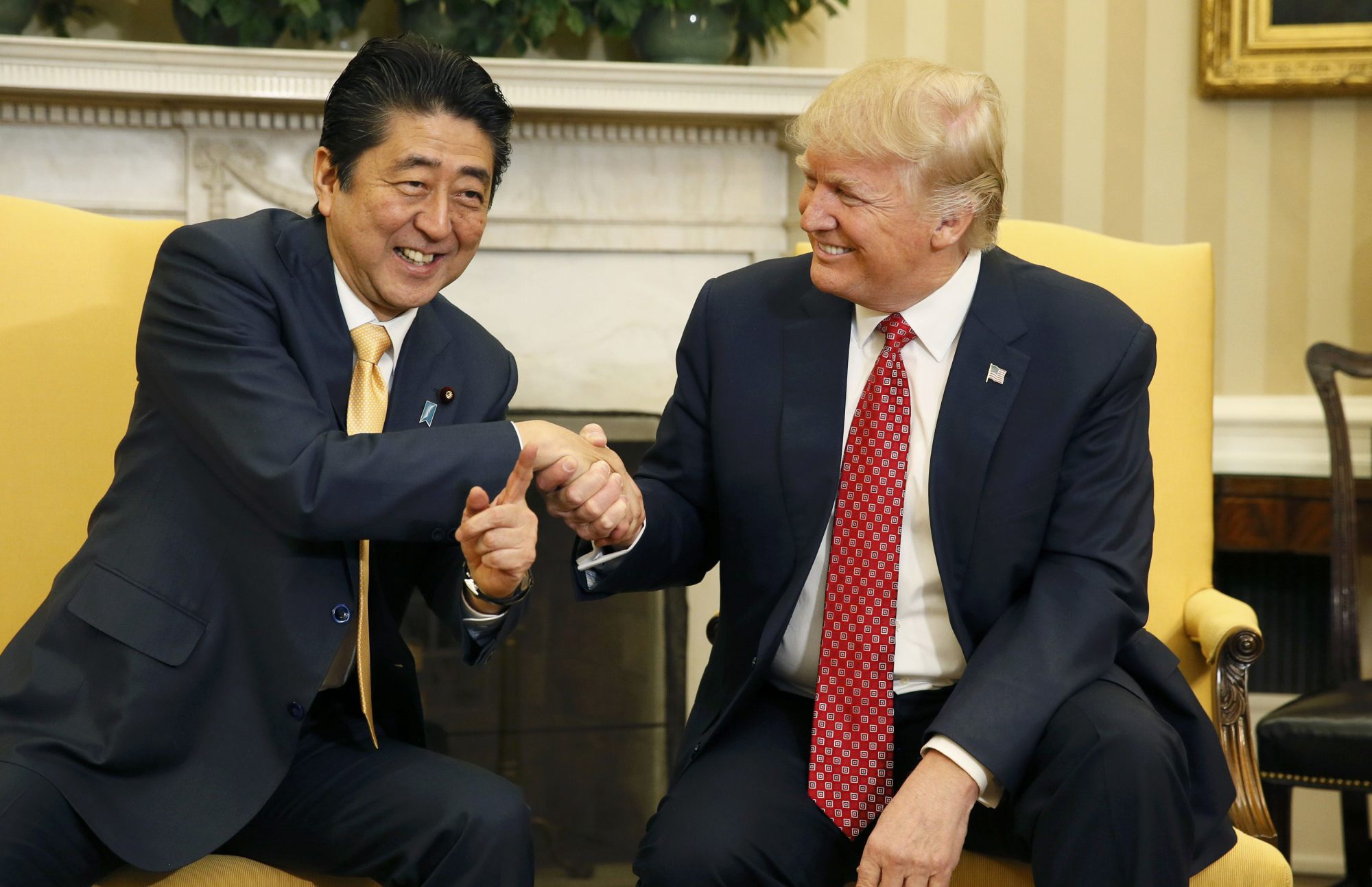Citing growing military threats from China and North Korea, Prime Minister Shinzo Abe said Tuesday that Tokyo must maintain close ties with U.S. President Donald Trump because the United States realistically is the only country that can effectively defend Japan if it were attacked by a third country.
Abe's push to build a close and personal relationship with Trump has drawn criticism from home and abroad. Still, the prime minister has kept mum on controversies stirred up by the Trump administration, including the U.S. travel ban on seven Muslim-majority countries.
Asked about risks of cozying up with Trump, Abe said he believes "there is no other choice" for Japan but to "demonstrate a close relationship with President Trump to the world."


















With your current subscription plan you can comment on stories. However, before writing your first comment, please create a display name in the Profile section of your subscriber account page.